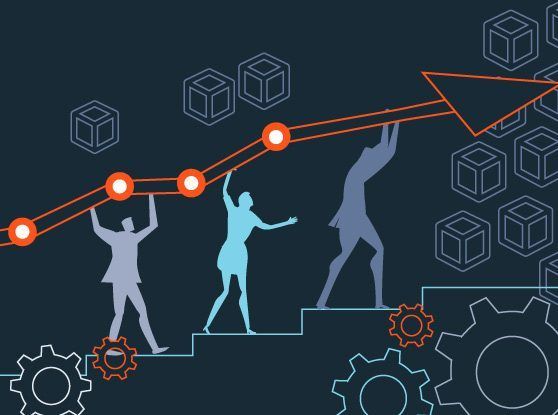Here's a challenge: you have a critical decision that needs to be resolved in the next 48 hours. Who would you go to for advice? Would you only consult one person?
Hang around the entrepreneurial water cooler long enough and you will undoubtedly hear someone tout the benefits of working with mentors. You may already have mentors with whom you regularly consult. The question to reflect on is whether these people are really mentors, or whether they play some other role in your professional advancement. Are they advisors, trusted peers or industry experts instead - mentorship may be confused with other specific support roles that you should seek to build.
Having a strong professional network is important, and to effectively address every challenge, it's vital to build a diverse inner circle (including a mentor) who possess unique perspectives and skills. These individuals can help you tackle business and tactical challenges; they will provide a dose of emotional support as needed. Working with a diverse, specialized group is key to making the right decisions, augmenting your core competencies and tackling the tough problems that threaten personal and professional growth. Below are four categories of professionals that you need on your personal board: mentor, sponsor, trusted peer and advisor.
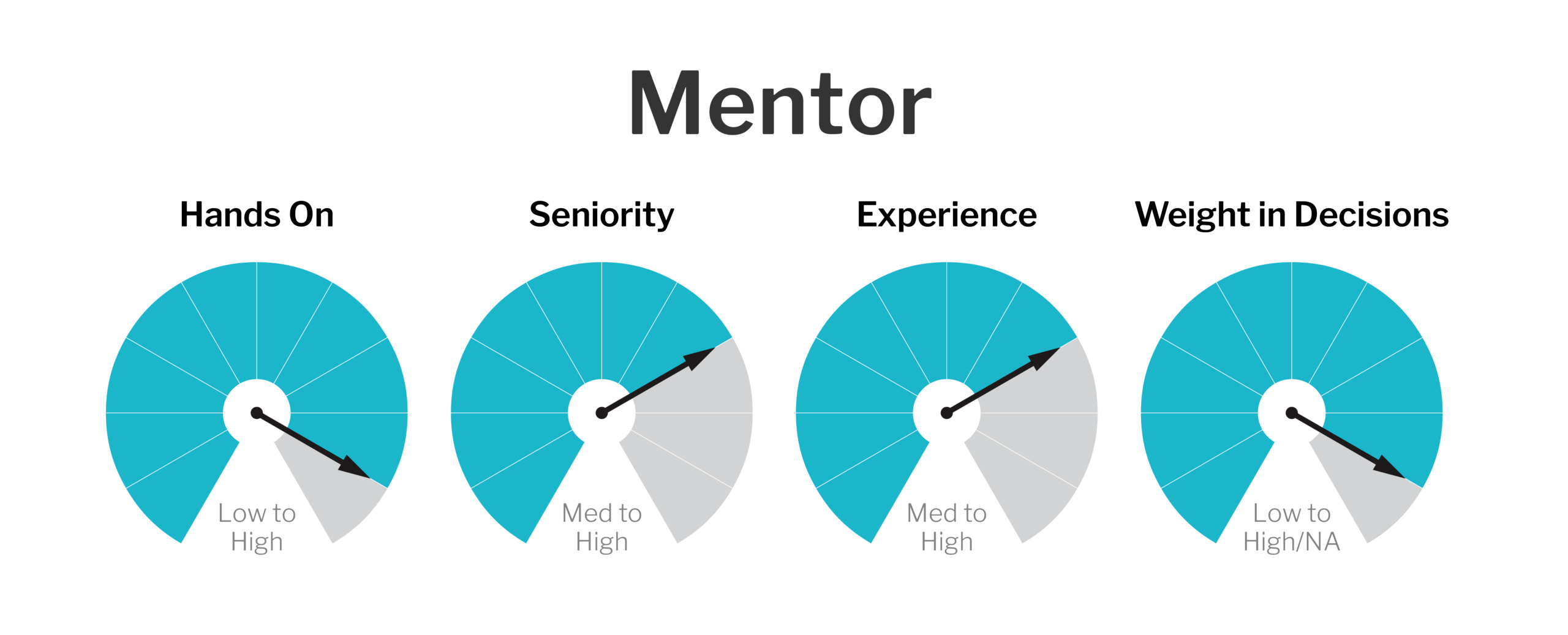
Mentor (The Personal Coach) The mentor is the most hands-on of your personal board members. This person will be the “hand-holder” of the group, your "go to" coffee date, and your long-term coach. The mentor is the individual you consult when you are facing challenges and issues that threaten your personal development and growth as a business leader. Your mentor can either be a peer or someone more senior, but regardless, this person will provide ongoing guidance and insight over the long-term.
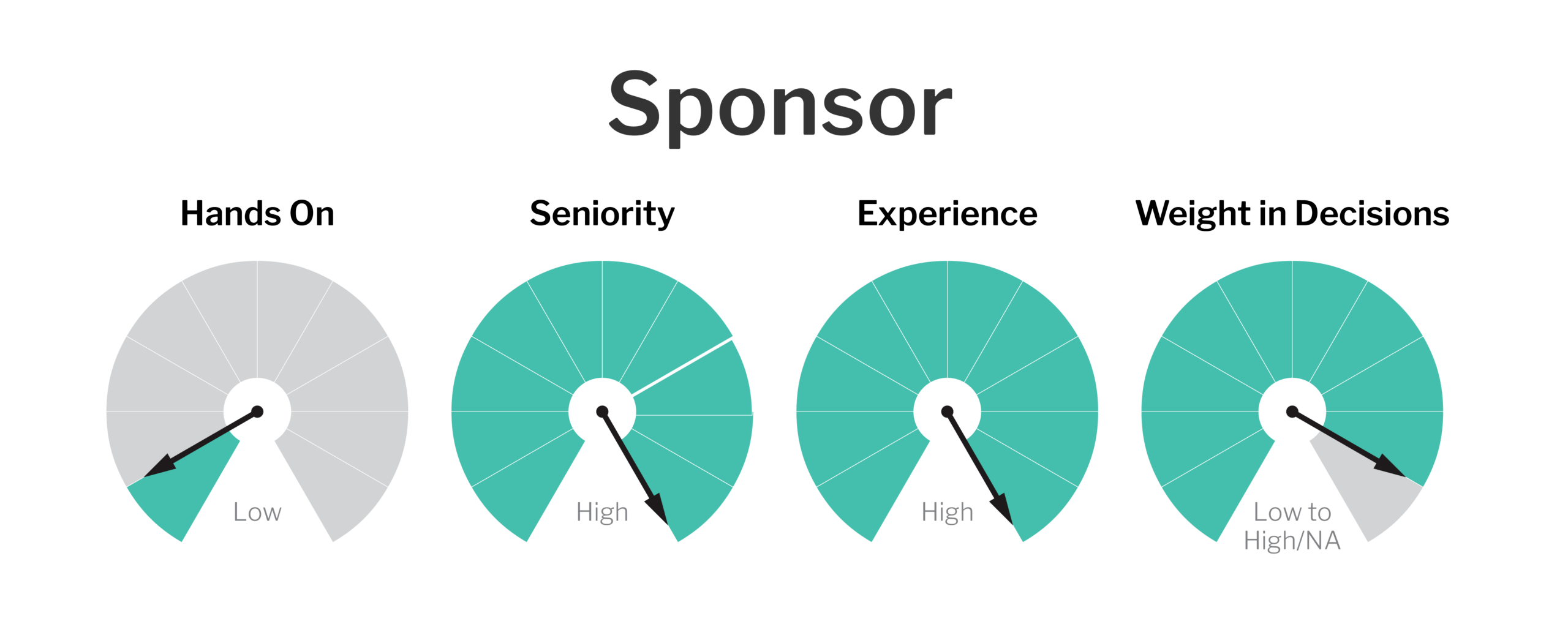
Sponsor (The Influencer) A sponsor is typically a senior business leader in your workplace, perhaps an industry expert or someone well respected, who uses their leadership position to advocate for you. This person is in a position to influence your career trajectory by opening up opportunities and ensuring that you're part of the consideration set for promotions, new roles or activities. Sponsors open doors, even in the face of other people's doubt. They can advocate for your work and character based on knowledge of you and direct observation of your capabilities. In contrast to the mentor, your sponsor will not spend quality time with you hashing out your challenges, rather they will be a cheerleader in your corner, using their sphere of influence to elevate your status, role and connections.
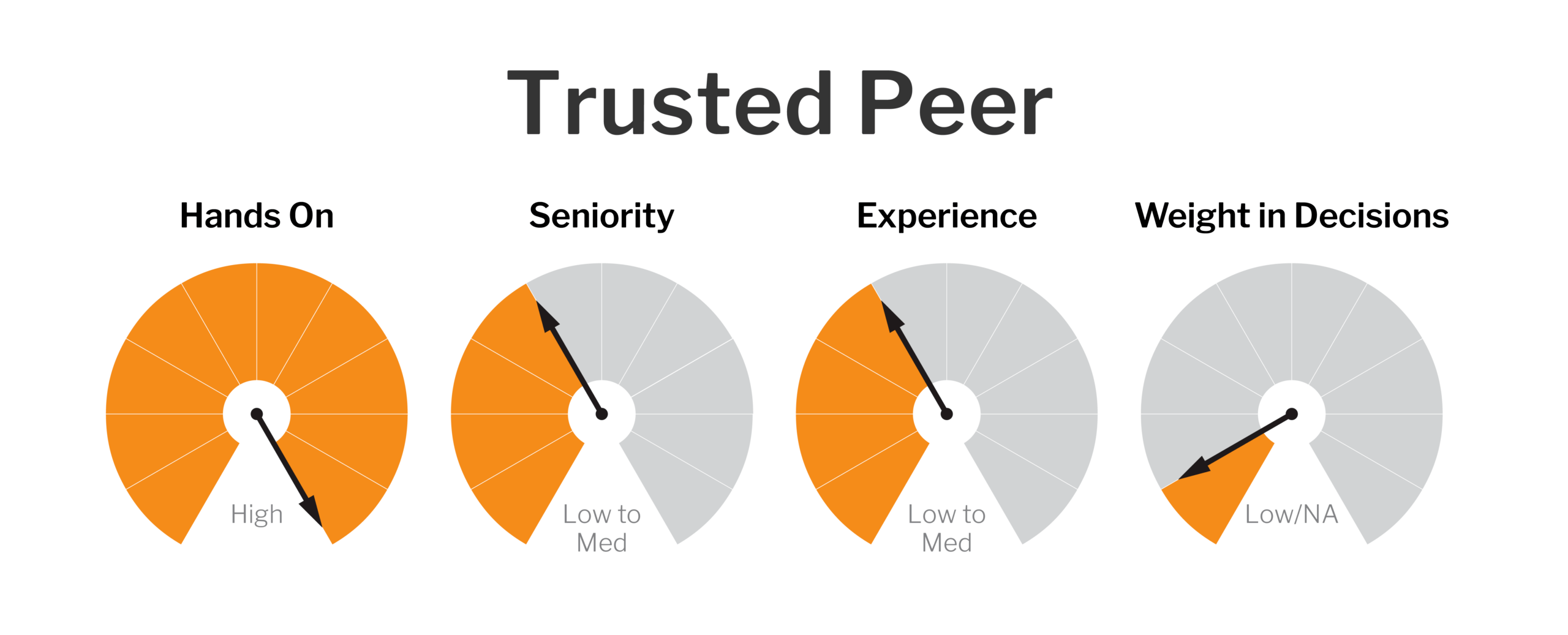
Trusted Peer (The Emotional Confidant) The trusted peer is the person who provides emotional support during critical times and personal struggles. Your personal "sounding board," they are the one you can rely on to help you regain alignment in your quest for organizational and personal growth, even when your insecurities are flying high. This person could be a mentor or also a friend; more importantly, it is someone in whom you can confide and trust.
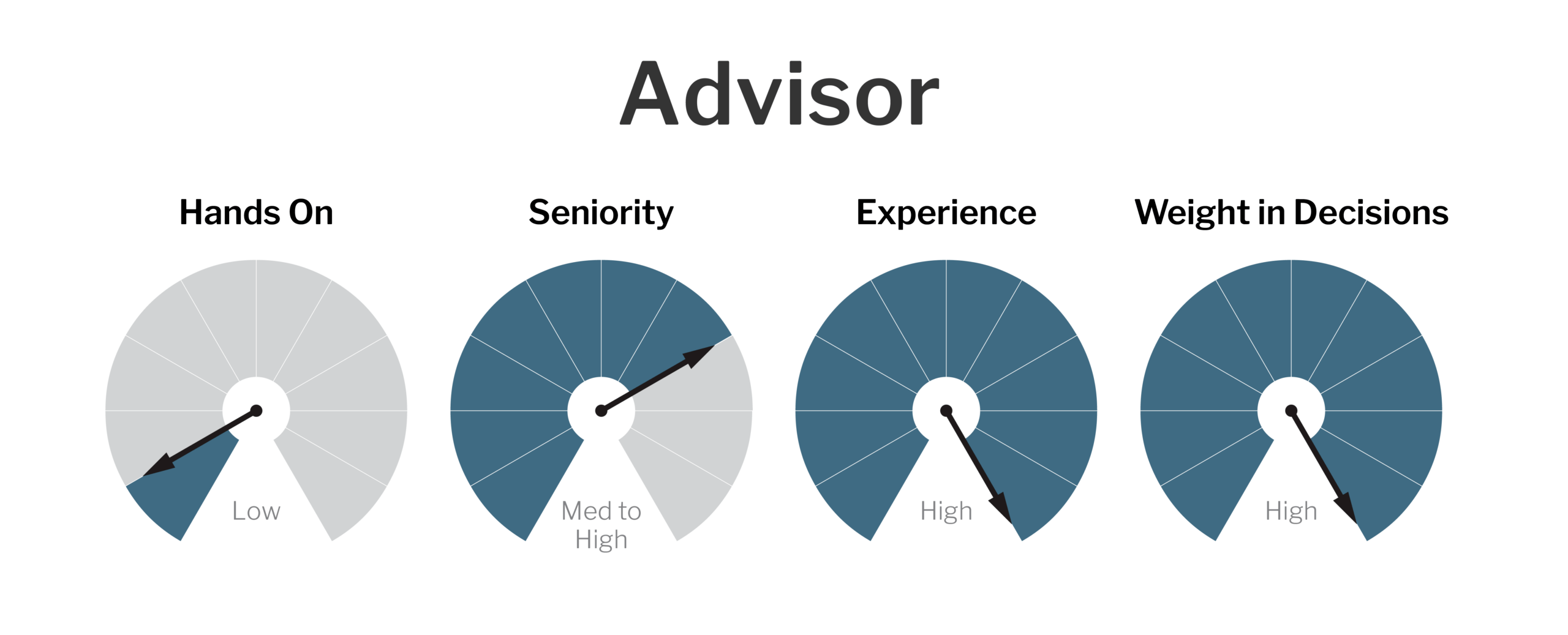
Advisor (The Strategizer) It’s important to think about a personal advisory board: a diverse group of 3-6 people who weigh in on the important decisions that have wide ramifications. These people are probably too busy to be a mentor (or may be prior mentors who are now less active), but are people that have your best interest at heart, and can help you problem solve with both objectivity and kindness. This board probably includes your parents, friends, or partner. Here's another challenge: take a minute to make a list of the key influencers in your life. How would each of these individuals fit into these four categories?





